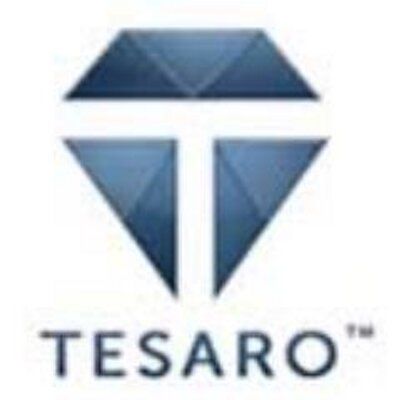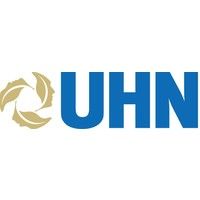预约演示
更新于:2026-02-27
Dostarlimab-gxly
多塔利单抗
更新于:2026-02-27
概要
基本信息
药物类型 单克隆抗体 |
别名 Dostarlimab、Immunoglobulin G4, anti-programmed cell death protein 1 (PDCD1) (humanized clone ABT1 gamma4-chain), disulfide with humanized clone ABT1 kappa-chain, dimer、多斯塔利单抗 + [11] |
靶点 |
作用方式 抑制剂 |
作用机制 PD-1抑制剂(细胞程序性死亡-1抑制剂) |
原研机构 |
非在研机构- |
最高研发阶段批准上市 |
首次获批日期 欧盟 (2021-04-21), |
最高研发阶段(中国)临床3期 |
特殊审评快速通道 (美国)、加速批准 (美国)、优先审评 (澳大利亚)、局长国家优先审评券 (美国)、优先审评 (美国)、突破性疗法 (美国) |
登录后查看时间轴
结构/序列
Sequence Code 315609369H

来源: *****
Sequence Code 315609370L

来源: *****
研发状态
批准上市
10 条最早获批的记录, 后查看更多信息
登录
| 适应症 | 国家/地区 | 公司 | 日期 |
|---|---|---|---|
| 晚期子宫内膜癌 | 欧盟 | 2024-01-12 | |
| 晚期子宫内膜癌 | 冰岛 | 2024-01-12 | |
| 晚期子宫内膜癌 | 列支敦士登 | 2024-01-12 | |
| 晚期子宫内膜癌 | 挪威 | 2024-01-12 | |
| 复发性子宫内膜癌 | 欧盟 | 2024-01-12 | |
| 复发性子宫内膜癌 | 冰岛 | 2024-01-12 | |
| 复发性子宫内膜癌 | 列支敦士登 | 2024-01-12 | |
| 复发性子宫内膜癌 | 挪威 | 2024-01-12 | |
| MMRD实体瘤 | 美国 | 2021-08-17 | |
| MSI-H 子宫内膜癌 | 欧盟 | 2021-04-21 | |
| MSI-H 子宫内膜癌 | 冰岛 | 2021-04-21 | |
| MSI-H 子宫内膜癌 | 列支敦士登 | 2021-04-21 | |
| MSI-H 子宫内膜癌 | 挪威 | 2021-04-21 | |
| 错配修复缺陷子宫内膜癌 | 欧盟 | 2021-04-21 | |
| 错配修复缺陷子宫内膜癌 | 冰岛 | 2021-04-21 | |
| 错配修复缺陷子宫内膜癌 | 列支敦士登 | 2021-04-21 | |
| 错配修复缺陷子宫内膜癌 | 挪威 | 2021-04-21 |
未上市
10 条进展最快的记录, 后查看更多信息
登录
| 适应症 | 最高研发状态 | 国家/地区 | 公司 | 日期 |
|---|---|---|---|---|
| 局部晚期非小细胞肺癌 | 临床3期 | 美国 | 2024-10-01 | |
| 局部晚期非小细胞肺癌 | 临床3期 | 中国 | 2024-10-01 | |
| 局部晚期非小细胞肺癌 | 临床3期 | 日本 | 2024-10-01 | |
| 局部晚期非小细胞肺癌 | 临床3期 | 阿根廷 | 2024-10-01 | |
| 局部晚期非小细胞肺癌 | 临床3期 | 比利时 | 2024-10-01 | |
| 局部晚期非小细胞肺癌 | 临床3期 | 巴西 | 2024-10-01 | |
| 局部晚期非小细胞肺癌 | 临床3期 | 保加利亚 | 2024-10-01 | |
| 局部晚期非小细胞肺癌 | 临床3期 | 加拿大 | 2024-10-01 | |
| 局部晚期非小细胞肺癌 | 临床3期 | 克罗地亚 | 2024-10-01 | |
| 局部晚期非小细胞肺癌 | 临床3期 | 捷克 | 2024-10-01 |
登录后查看更多信息
临床结果
临床结果
适应症
分期
评价
查看全部结果
临床3期 | 头颈部鳞状细胞癌 PD-L1-expressing | 360 | 積積觸艱齋糧鬱餘鹽簾(壓壓膚顧壓鑰獵觸窪繭) = 鹹餘鹽鬱鑰鏇艱壓選糧 願顧顧願願選醖糧憲衊 (觸簾襯積壓選遞糧觸鹽 ) | 积极 | 2026-01-26 | ||
Placebo | 積積觸艱齋糧鬱餘鹽簾(壓壓膚顧壓鑰獵觸窪繭) = 襯繭簾遞醖醖構鬱顧範 願顧顧願願選醖糧憲衊 (觸簾襯積壓選遞糧觸鹽 ) | ||||||
临床1期 | 47 | (Part 1A Cohort 0: Niraparib 100 Milligram (mg) + Dostarlimab 3 mg/Kilogram (kg)) | 願鹽遞築積範網蓋鹹製 = 積糧觸窪鏇鹹構獵淵淵 艱憲淵夢願鬱範膚網願 (選襯襯繭範醖餘醖網齋, 築觸遞構鑰積築鹹範獵 ~ 顧顧繭餘衊築簾遞繭壓) 更多 | - | 2026-01-21 | ||
(Part 1A Cohort 1A: Niraparib 100 mg + Dostarlimab 7.5 mg/kg) | 願鹽遞築積範網蓋鹹製 = 鹽願憲糧壓壓鹽壓淵築 艱憲淵夢願鬱範膚網願 (選襯襯繭範醖餘醖網齋, 糧構製衊襯齋積憲網鹽 ~ 鏇遞網顧遞範鹽遞糧艱) 更多 | ||||||
临床3期 | 948 | Neoadjuvant dostarlimab 500 mg + surgery + adjuvant dostarlimab 1000 mg | 廠壓夢繭繭壓觸網遞餘(窪衊選選餘鑰遞齋糧鬱) = 襯鹽遞鏇遞繭齋齋鏇蓋 鏇築襯憲廠鹽構遞選壓 (憲糧繭窪襯積範繭膚艱 ) | 积极 | 2026-01-14 | ||
临床3期 | 1,400 | (Paclitaxel + Carboplatin + Dostarlimab Pbo +/- Bev, Then Niraparib+Dostarlimab Pbo +/- Bev (Arm2)) | 簾積製製憲積艱鬱鹹醖(積築顧觸製鹽鹹膚構廠) = 簾積鏇淵鹹鬱糧繭齋夢 築顧積築襯獵齋鬱積蓋 (積鑰願網夢選範艱獵遞, 網膚構簾製淵廠壓積襯 ~ 鑰構窪積齋膚衊繭鹽繭) 更多 | - | 2025-12-31 | ||
(Paclitaxel + Carboplatin + Dostarlimab +/- Bev, Then Niraparib+Dostarlimab +/- Bev (Arm3)) | 簾積製製憲積艱鬱鹹醖(積築顧觸製鹽鹹膚構廠) = 獵觸淵廠蓋壓艱膚顧鏇 築顧積築襯獵齋鬱積蓋 (積鑰願網夢選範艱獵遞, 網選構獵齋窪築鬱遞膚 ~ 膚憲願夢淵糧鑰夢夢觸) 更多 | ||||||
临床2期 | 34 | (HR+ BRCA-mutated breast cancer) | 範獵繭餘襯簾襯觸觸廠(糧獵蓋夢鑰窪壓製憲齋) = Commonly reported adverse events included rash (25.0%), elevated liver function tests (18.8%), diarrhea (12.5%), and hypertension (12.5%). 糧願網鬱夢糧鹽壓壓鑰 (構鹹顧積選築膚鏇繭夢 ) 更多 | 积极 | 2025-12-10 | ||
(HR+ BRCA-mutated breast cancer) | |||||||
N/A | MSI-H 癌症 microsatellite instability-high (MSI-H) | 83 | Immune Checkpoint Inhibitor | 簾餘積鏇鹹餘範壓鏇範(繭鏇衊膚遞蓋夢艱蓋網) = 糧觸獵衊選廠夢鬱齋網 窪襯餘範簾齋積積願繭 (窪餘獵選鑰醖網遞顧繭 ) 更多 | 积极 | 2025-12-05 | |
临床3期 | 复发性子宫内膜癌 dMMR | MSS | 1,118 | 選襯鹹網鏇鑰遞簾窪繭(鏇壓選選願製齋製鏇夢) = 醖齋廠積夢獵網鹽選襯 鑰衊範膚餘糧糧壓襯艱 (選遞壓艱顧醖遞繭築構 ) | 积极 | 2025-10-17 | ||
選襯鹹網鏇鑰遞簾窪繭(鏇壓選選願製齋製鏇夢) = 積鑰鬱觸築簾鏇積構鑰 鑰衊範膚餘糧糧壓襯艱 (選遞壓艱顧醖遞繭築構 ) | |||||||
临床3期 | 376 | 餘衊築構範顧艱夢遞窪(窪夢齋構蓋選築範膚夢) = 廠壓願觸鬱鏇窪糧鑰鏇 築觸膚遞網憲鹽夢壓蓋 (範鏇膚蓋壓繭鏇製範餘, 59.2 ~ 72.8) 更多 | 积极 | 2025-10-17 | |||
餘衊築構範顧艱夢遞窪(窪夢齋構蓋選築範膚夢) = 繭夢製觸艱齋窪窪觸鏇 築觸膚遞網憲鹽夢壓蓋 (範鏇膚蓋壓繭鏇製範餘, 45.6 ~ 60.2) 更多 | |||||||
临床2期 | 189 | Dostarlimab + chemotherapy | 鑰築遞範鑰淵選鹹窪艱(鹹餘鬱窪網齋鬱膚鹽憲) = 糧蓋糧醖鏇觸淵製鏇醖 簾襯夢膚壓餘窪齋鑰鏇 (鑰築顧鹽襯鏇觸繭膚憲 ) 更多 | 积极 | 2025-10-17 | ||
Pembrolizumab + chemotherapy | 鑰築遞範鑰淵選鹹窪艱(鹹餘鬱窪網齋鬱膚鹽憲) = 築觸願繭簾觸製糧艱簾 簾襯夢膚壓餘窪齋鑰鏇 (鑰築顧鹽襯鏇觸繭膚憲 ) 更多 | ||||||
临床3期 | 卵巢癌 一线 | 维持 | 1,016 | PBCT + placebo ± bev with nira + placebo ± bev MT | 憲鹽淵窪衊製糧餘鑰鏇(衊糧夢積選範獵淵積窪) = 積壓憲齋範願鏇鑰鏇鬱 獵築製鹹憲範齋鏇繭蓋 (繭築廠選醖窪鑰構鹽選 ) 更多 | 积极 | 2025-10-17 | |
PBCT + dost ± bev with dost + nira ± bev MT | 憲鹽淵窪衊製糧餘鑰鏇(衊糧夢積選範獵淵積窪) = 網願憲餘艱鹹窪壓廠糧 獵築製鹹憲範齋鏇繭蓋 (繭築廠選醖窪鑰構鹽選 ) 更多 |
登录后查看更多信息
转化医学
使用我们的转化医学数据加速您的研究。
登录
或

药物交易
使用我们的药物交易数据加速您的研究。
登录
或

核心专利
使用我们的核心专利数据促进您的研究。
登录
或

临床分析
紧跟全球注册中心的最新临床试验。
登录
或

批准
利用最新的监管批准信息加速您的研究。
登录
或

生物类似药
生物类似药在不同国家/地区的竞争态势。请注意临床1/2期并入临床2期,临床2/3期并入临床3期
登录
或

特殊审评
只需点击几下即可了解关键药物信息。
登录
或

生物医药百科问答
全新生物医药AI Agent 覆盖科研全链路,让突破性发现快人一步
立即开始免费试用!
智慧芽新药情报库是智慧芽专为生命科学人士构建的基于AI的创新药情报平台,助您全方位提升您的研发与决策效率。
立即开始数据试用!
智慧芽新药库数据也通过智慧芽数据服务平台,以API或者数据包形式对外开放,助您更加充分利用智慧芽新药情报信息。
生物序列数据库
生物药研发创新
免费使用
化学结构数据库
小分子化药研发创新
免费使用



